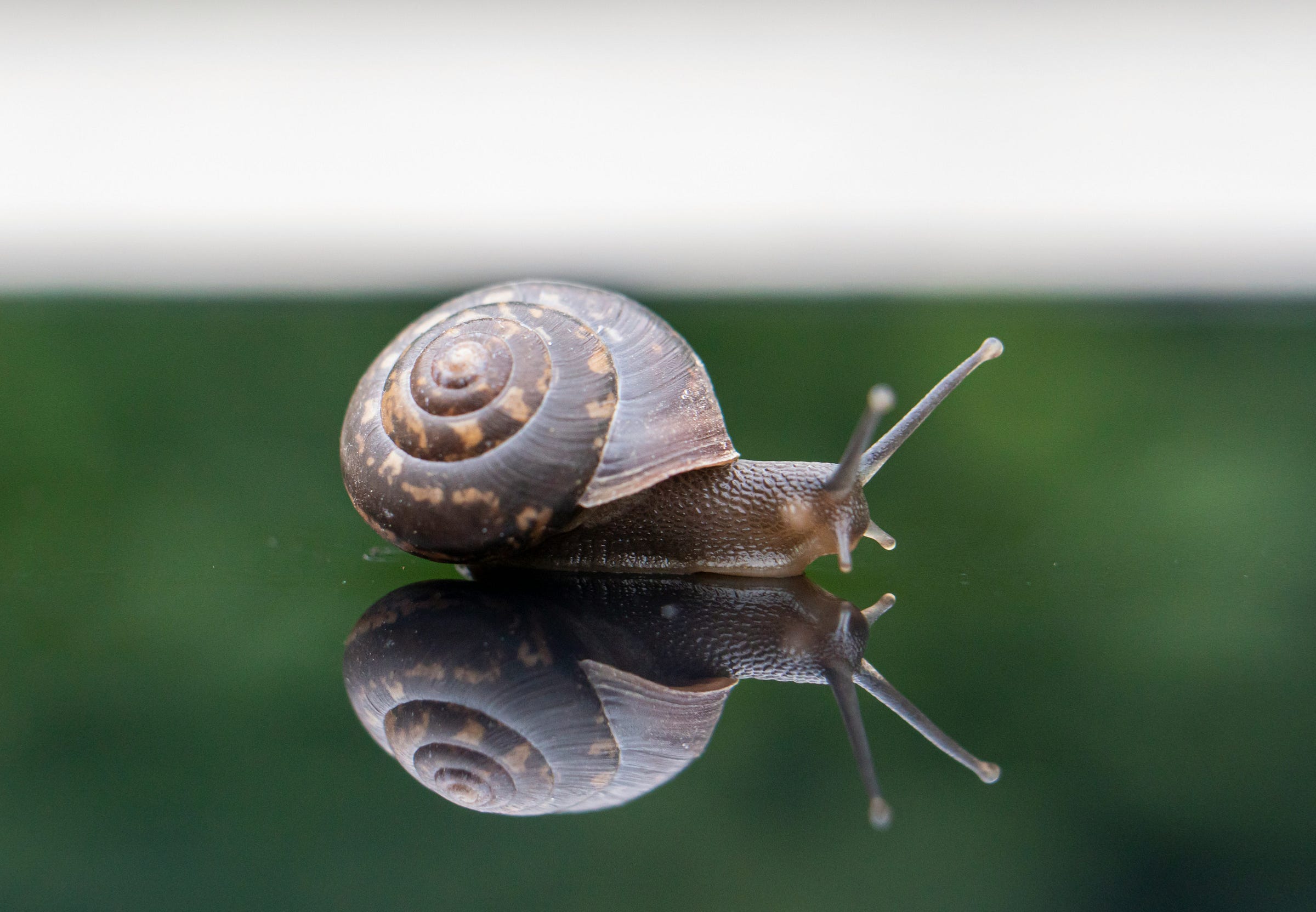This week I had the pleasure of meeting up with Sarah Davies, the author of a blog that I follow here on Substack: Snailing It. The blog chronicles Sarah's project to slow down in life: to downsize life's activities and to focus her time and attention on the things that create the most meaning for her.
Oh that's nice, you might think, easy for some! Sit in the garden and daydream, break out the knitting, etc etc. In reality it's not so simple. Going slow in this crazy-fast world requires planning, strategy, discipline and effort – it is its own kind of work. Deeply rewarding, and very much worth it – but work all the same.
For example, Sarah described the emotional effort required when learning to say no. No to invitations, no to requests for one's time or one's energy. Women in particular are raised to accommodate others, to be available and to support our friends and family whenever needed. So drawing a line around our availability impacts on those relationships and demands a shifting of priorities which may feel quite foreign. Saying no to someone else in order to say yes to oneself: is that not... selfish? (Hint: no, it's not.) In fact, Sarah revealed that actually most people are just fine with being told no. They take it on board, and move on.
Another strategy one must consider is the cull: mapping out all of the demands on one's time, and identifying the things that can be eliminated. Some of these things, she pointed out, were things that she enjoys doing. But then there are other things she enjoys doing even moreso. The decision to focus on the most meaningful and enjoyable projects and activities meant letting go of some others which were less meaningful and enjoyable.
We talked books – and Sarah recommended The Success Myth by Emma Gannon. I've started reading it, and already have been given food for thought. She points out at the beginning that 'there is no success formula' which in itself is reassuring. How often do we chart our choices and their outcomes against some imaginary 'best practice' ideal? Have I made any mistakes? Did I take a wrong footing? Why didn't this work the way I wanted it to or thought that it would?
I've only just started the book, but already I can see that Emma Gannon recognises complexity, and understands the multitude of factors that lead to a multitude of outcomes. She points out that “when we perpetuate stereotypes about success... we are missing so much nuance – and nuance is a very crucial and forgotten element of this conversation.”
So how do we bring nuance back into the conversation? How do we allow for different perspectives to be included in discourse, for multifaceted ideas to be explored, and for paradox to be embraced? Well, circling back to where we began: we do these things by going slow, and by savouring each step as we progress in a chosen direction.
I recently wrote this to a friend: “It's all ok, I'm not burnt out yet. Just getting SOS signals from my Higher Self haha” My friend very kindly scolded me to take a break, and I will (I am heading on a trip to see another friend in Poland this week, a sorely needed holiday.) I feel really grateful to have this opportunity. My plan is to step back from it all and take stock. To envisage a less crowded, more spacious life. To start shaping things accordingly. To go slow and to snail it.




"...we are missing so much nuance – and nuance is a very crucial and forgotten element of this conversation.” I love this retrieval of the value of 'nuance' - an unassuming word with such profound consequence (imagine our present world with more nuance). It has sent me off on a little etymological wander ... 'nuance' comes from the French 'nuage' meaning 'cloud' and references the subtlety of tone and constantly shifting light and shade of clouds. And this made me wonder about the word 'subtle' which combines the Latin sub "under" + -tilis, from tela "web, net, warp of a fabric". Slowing down allows us to notice the less obvious threads of life that pass under the warp. These are the finest threads ('fine' meaning here both slender and of highest value). The noticing which time affords must therefore be an essentially enriching experience. If we could feel ourselves a little richer in this sense, perhaps we would not need to run around consuming and distracting ourselves in ways that are literally costing us the earth.
This wandering/wondering about 'nuance' reminds me of a poem I penned a few years ago - www.sueholliday.com/project/between - which concludes:
So tender to me
all that lies in between,
show me tones tints and hues
of reds greens and blues.
Gentle my soul
with shades and with greys,
with almond and amber, lilac and teal.
Mix these pure pigments with oils and with clays
to soften and sooth
the birth pains of these days.
Thankyou for this reminder to treasure 'nuance' and for the invitation to take a moment in my day to look at some clouds!
So pleased that we met and that I could help you a little bit on your journey. Enjoy your holiday x